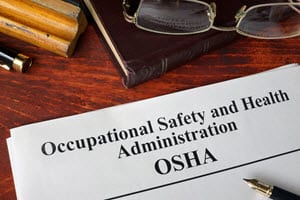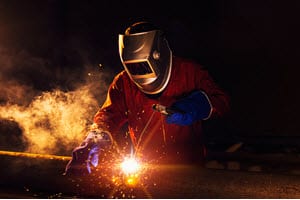 Free Consultation
(610) 667-7511
Free Consultation
(610) 667-7511
 Free Consultation
(610) 667-7511
Free Consultation
(610) 667-7511
In certain types of jobs and work environments, it is very easy to get overheated. The risks of overheating become worse in the summer, especially if your employer does not provide a safe work environment. If you become overheated at work to the point where you need to seek medical treatment, your employer’s workers’ compensation insurance should cover your medical bills. If you suffer serious harm as a result of developing a heat-related illness, you may also be eligible for wage loss under the workers’ compensation laws of Pennsylvania.
According to the Occupational Safety and Health Administration (OSHA), thousands of workers become sick due to occupational heat exposure. In some cases, workers can even die. The first way to avoid overheating is to make certain you are in a safe work environment. Many instances of overheating are completely avoidable if employers and employees work together to be aware of risks and do what they can to minimize them.
Both indoor and outdoor environments can be dangerous. Any environment with, “high air temperatures, radiant heat sources, high humidity, direct physical contact with hot objects, or strenuous physical activities have a high potential for causing heat-related illnesses.” The higher the heat index, the hotter the environment, the more it is important to be careful. Bulky clothing which does not allow sweating also increases the risk of overheating.

OSHA fines companies which are unsafe. It also provides free guidance for small businesses.
Employers should be aware that the risks increase at each of the following temperatures:
No matter the temperature, it is important to take the steps necessary to help employees maintain their body temperatures. Employers should provide a safe environment by with appropriate air conditioning and ventilation when indoors. They also should provide work cycles to give employees the opportunity to rest and drink fluids. In addition, new employees who are not used to hot environments need to be given time to adjust. People who are new to high temperature work are more likely to experience overheating or other heat-related illnesses than those who are experienced with hot environments.
If you are a small business, OSHA provides a free and confidential safety program. Employers can take advantage of this program to reduce the risks to their employees. Reducing risks decreases the likelihood of sick employees, which in turn, reduces the risk of insurance claims. OSHA can also fine businesses that fail to provide safe work environments. Given the risks, safe work environments are smart business. As an employee, if you feel that your work environment is unsafe, you can make a free call to OSHA at 1-800-321-6742. The call is confidential.
The summer is the more dangerous time for overheating risks, especially for outdoor workers. But indoor environments have their dangers as well. According to OSHA, common industries for overheating or other heat-related illnesses include:

Many workers, both in and outdoors, are at risk of overheating.
Whether inside or outside, it is important to make sure that you get rid of excess heat so that you can “maintain a stable internal temperature. We maintain body temperature through sweating and circulation of blood to the skin. An increased risk of overheating begins as the temperature approaches normal body temperature (above 91 degrees). This is because it becomes difficult for your body to cool itself. When your body cannot get rid of the excess heat, it stores it. This causes the body core temperature and the heart rate to increase. The longer this occurs, the more likely you will overheat. If you already have high blood pressure or other medical issues, the greater the risk for you. Also, the greater the exertion, the greater the likelihood of a serious problem.
Be aware of the signs of heat illnesses. These include:
Followed by:
According to MedlinePlus (a government website) if you notice any of these signs in yourself or a coworker, it is important to get out of

Heat stroke is a medical emergency.
the heat or sun right away and drink water or a sports drink. It is critical to get treatment if you do not feel better after getting a rest away from the heat and drinking fluid.
Heatstroke signs may include:
If you see heatstroke in yourself or a co-worker, call 911 and get medical care right away.
Employers need to keep their workers safe from heat-related illnesses such as overheating or heat stroke. They can do this by providing an appropriate environment and making certain that employees have ample opportunities to rest and stay hydrated.
Workers should make certain they do what they can to avoid becoming ill when it becomes too hot. The point at which it is too hot will vary by worker and environment. If you notice that you or a co-worker is developing a heat-related illness, it is important to act quickly. If you end up requiring medical care due to your heat-related illness, you have rights under the workers’ compensation act. This includes payment of medical bills and lost wages.
Suffered from lost wages due to a heat-related illness at work? Don’t hesitate to reach out to the workers’ compensation team at Lowenthal & Abrams. We will help you enforce your rights.
LOWENTHAL AND ABRAMS, P.C.

Contact us for a FREE consultation. No fee unless compensated.